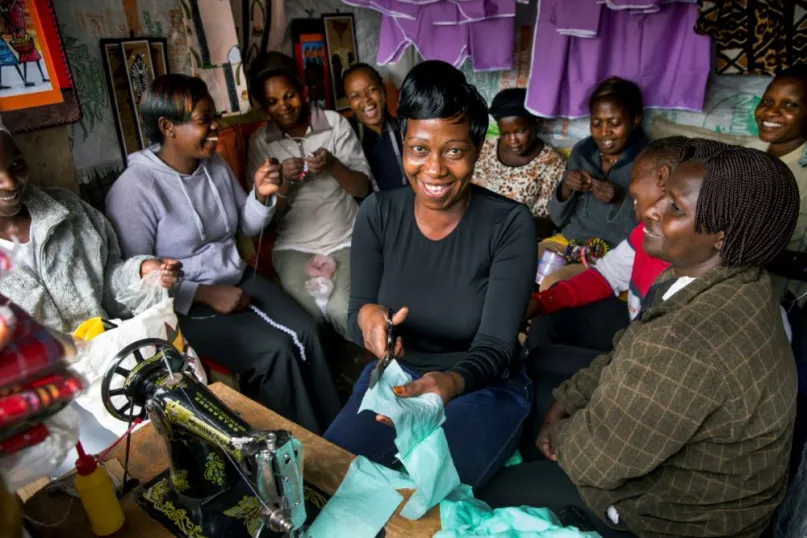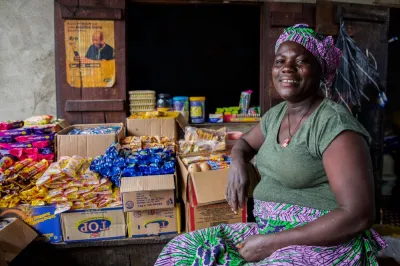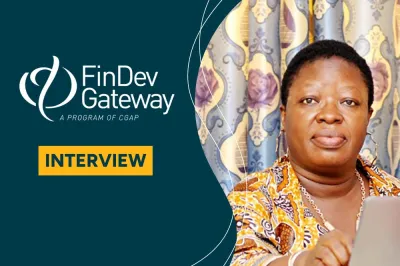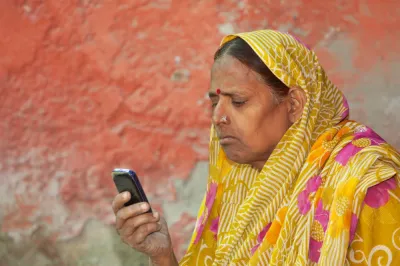Beyond “The Poor”: Using Empowering Narratives to Advance the Impacts of Aid

Imagine that you live in a remote village and you see an organization arrive. It is called “Aid for the Poor.” You know your household doesn’t have much money, especially compared to some others in the village, but you wouldn’t want to refer to yourself as being among “the poor.” You certainly wouldn’t want your neighbors to refer to you that way. But the organization workers come to knock on your door in particular, offering food packages. Even though you resent the way they’ve labeled you and your family, you accept the food because you want to feed your children.
This psychological cost for receiving help is a common conundrum faced by the millions of households that receive aid each year around the world. 97% of the 30 largest cash transfer programs in Africa have mission statements which highlight recipients’ deficiencies—their vulnerability and low social positions. These narratives land on the ears of the people the programs intend to serve.

While the organizations working to end poverty and inequality act with the best intentions, recent research suggests that the narratives commonly used in aid and development initiatives (“the poor”, “the needy”) can inadvertently disempower people on the receiving end - ultimately undermining organizations’ aims.
Reason #1: Using “the poor” is counterproductive – it can disempower instead of empower
One experimental study led by Thomas and colleagues tested the effects of three aid narratives on recipients’ economic behavior and psychological experiences. Our team gave 565 residents in informal settlements in Nairobi a small cash transfer of about two days’ wages. We randomly varied the narratives–the name and stated goals–of each organization said to be giving the cash transfer, as follows:
- Poverty Alleviation Organization (i.e., the current deficit-focused default in aid narratives): “The goal of this Poverty Alleviation Organization is to alleviate poverty and reduce financial hardship among the poor.”
- Individual Empowerment Organization: “The goal of this Individual Empowerment Organization is to enable individuals to pursue personal goals and become more financially independent.”
- Community Empowerment Organization: “The goal of this Community Empowerment Organization is to enable people to support those they care about and help communities grow together.”
People who heard the Poverty Alleviation message experienced the worst outcomes: they reported feeling less confident in their abilities, anticipated more stigma, and were less likely to take up an opportunity to build their business skills (an indicator of behavioral empowerment). The more culturally resonant Community Empowerment message led to significantly improved outcomes on each of these measures. Hearing that the donor organization saw them as capable actors who could contribute to their community’s progress led recipients to feel more empowered–to have higher aspirations, to believe more in their own capabilities, and to invest in building these capabilities further.


While it is often assumed that communications focused on “neediness” will pull at the heartstrings of donors, a second experiment in the U.S. showed that these three cash transfer organization narratives had similar effects on the amount of money potential donors were willing to give. In other words, the Poverty Alleviation narrative did not lead to higher donations than the Individual or Community Empowerment narratives. These findings suggest that we can magnify the impacts of aid -- and the billions of dollars annually donated -- through costless shifts in the narratives we use. These shifts would affirm the dignity and agency of recipients rather than triggering shame and vulnerability.
Reason #2: Using “the poor” recreates social exclusion and stigma
At a societal level, categorizations such as “the poor” reinforce social exclusion and inequality by creating a psychosocial divide between “the poor” and the implied “non-poor.” Rather than build a sense of fraternity and equal citizenship, these terms can evoke feelings of pity from the “non-poor.” They can also perpetuate othering – setting people apart as different from “us” and excluding them from the circle of those considered worthy in society.
Moreover, labels like “the poor” or “poor people” can imply that poverty is an intrinsic and defining feature of a whole category of persons. The terms don’t leave space for acknowledging the multifaceted humanity of those who happen to be experiencing poverty in that moment, or for recognizing the structural factors that contribute to their financial precarity.
Reason #3: Using “the poor” is inaccurate
Relatedly, “the poor” reflects inaccurate assumptions. Poverty statistics are usually calculated as a snapshot from one time period – for example, 18% of people around the world lived in multidimensional poverty in 2023. Yet, research makes it clear that poverty is not a stable, trait-like feature of persons or households. Instead, several studies find that households regularly flow in and out of poverty over time due in large part to broader structural and economic factors.
The solution: Use language which acknowledges experiences of poverty while also highlighting strengths
We recommend a paradigm shift towards more inclusive, respectful and effective language which acknowledges people’s lived experiences and highlights their strengths and potential. This shift has already been called for by other disciplines and professional organizations such as the American Psychological Association and J-PAL. Both have guidelines which suggest person-first language that acknowledges people’s hardships, but does not define them by it, for example: “people experiencing poverty” rather than “the poor.” Similarly, health and social workers use “people experiencing homelessness (PEH)” instead of “the homeless,” and “survivors” of domestic violence rather than “victims.”

In addition to using language which acknowledges the challenges of poverty, we can do even better by also recognizing the unique strengths of people contending with these challenges. Three studies reframed the identities of people in low-status groups (students from low-income backgrounds, refugee students, and individuals with experiences of depression) from helpless victims to strong and resourceful agents. They found that using empowering identity labels can not only be respectful but also self-fulfilling, allowing people to see themselves as more than their present circumstances and to act with agency towards brighter futures.
Words can cut deep – or they can build people up
Language has power. It can shape deep, self-perpetuating psychological processes about who we are, who we can become and how we are seen in society. By making costless shifts in our language, development organizations may better treat those we seek to serve and help instill new psychological narratives in our cultures about the dignity, humanity and agency of fellow human beings.



This article really resonated with me. The idea that the way aid organizations talk about recipients can actually be counterproductive is something I hadn't considered before.
The story about the different narratives used in the cash transfer experiment is particularly powerful. It highlights how simply changing the language used can have a big impact on people's self-esteem and motivation.
I also appreciate the point about using person-first language. "People experiencing poverty" sounds much more respectful than "the poor."
For me, the most important takeaway is the idea of empowering narratives. Shifting the focus to people's strengths and potential feels like a much more positive way to approach development work.
Thanks for sharing this important message!
Fantastic article! At Global Partners for Development, we resonate deeply with the emphasis on empowering narratives in development work. Since our inception over 45 years ago, we've been committed to fostering local leadership and community-led initiatives in East Africa. By prioritizing collaboration and genuine partnerships, we strive to ensure that our projects—ranging from supporting entrepreneurs to essential infrastructure development—reflect the needs and aspirations of the communities we serve. This approach not only sustains impacts but also honors the dignity and potential of every individual involved. Thank you for sharing these insights; they're crucial for rethinking how aid is communicated and implemented!
Interestingly, the feeling of being poor is an acquired knowledge from sentiments correctly captured in your article. What is perceived as poverty by others is just a way of life for those living it. A well meaning organisation donated shoes when I was younger and we declined when they termed them as help to the poor. We didn't think we qualified, never mind we were living in a slum.
Simply and well explained, this write up confers on the reader the gift of instant recognition of and empathy for the underlying conditions of life for so many of our fellow travelers in life’s journey.
Leave a comment